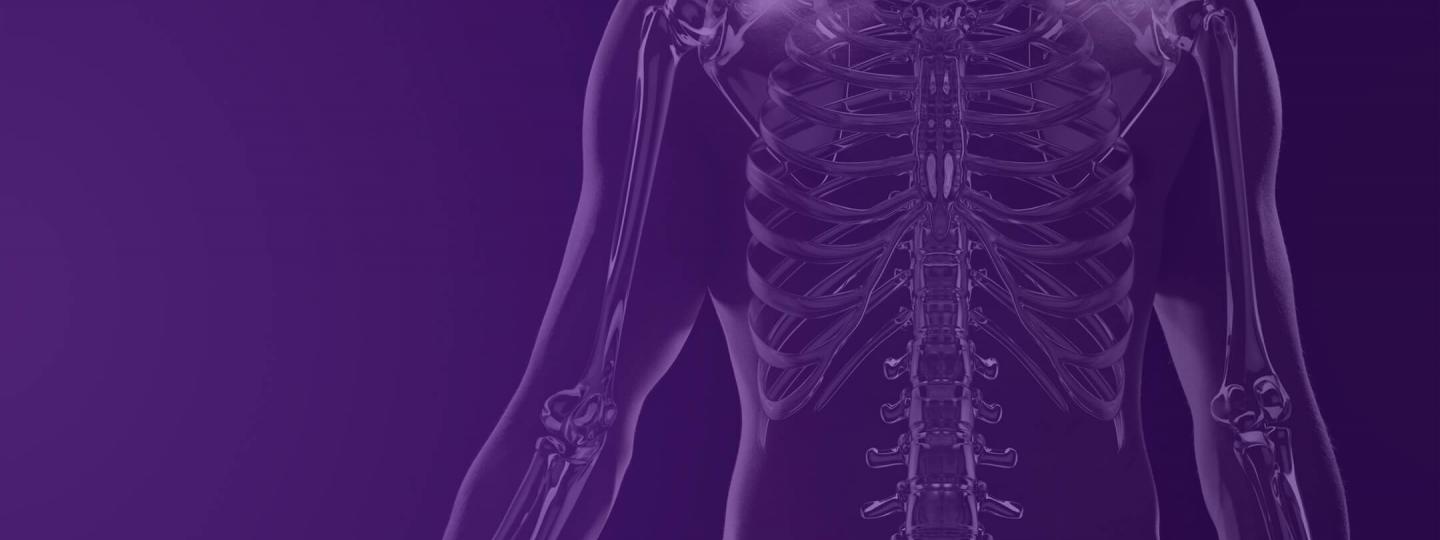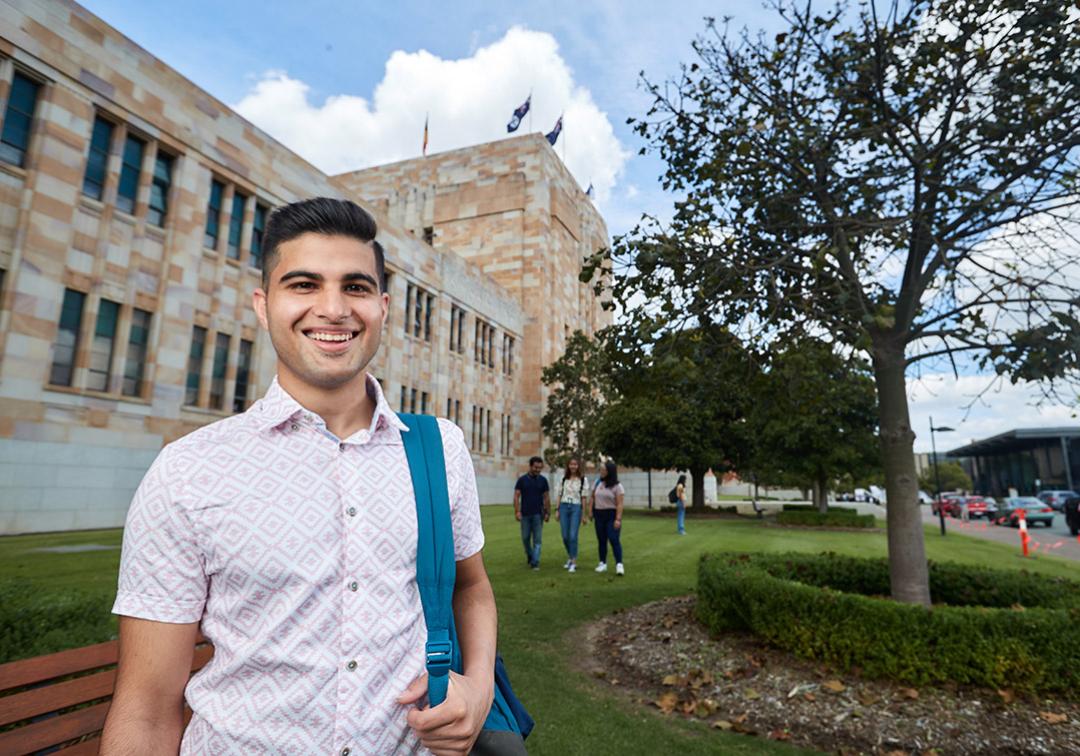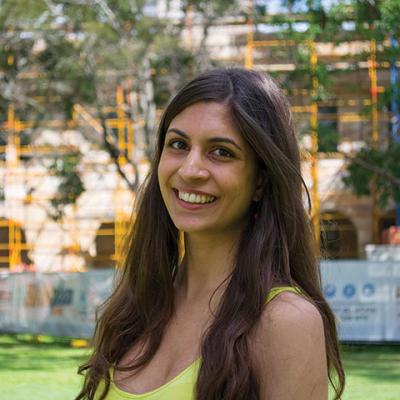
Master of Occupational Health and Safety Science
Overview
Gain the skills to improve industry practices and create safer workplace environments for people and communities.
The Master of Occupational Health and Safety Science is designed for graduates in science, engineering, health science, or an approved tertiary level background in human anatomy, human physiology, chemistry or physics.
Accredited by the Institute of Occupational Safety and Health and the Australian Occupational Health and Safety Education Accreditation Board, this program is taught by leading experts in Australia.
Build your knowledge of core occupational health and safety (OHS) disciplines, including:
- occupational hygiene
- ergonomics
- occupational health
- safety science
- risk management.
You'll learn how these disciplines are used across diverse environments.
Apply theory to practice and build your network and contacts with industry placements.
Graduate with the theoretical knowledge, practical application and professional attributes necessary for a career in OHS in Australia and overseas, and across all industries.
Program highlights
- Learn from some of Australia's top occupational health and safety (OHS) experts.
- Benefit from an industry-accredited program developed in response to industry demand for highly-qualified OHS professionals.
- Gather the technical and managerial skills you need to be work-ready when you graduate.
How you'll learn
Your learning experiences are designed to best suit the learning outcomes of the courses you choose.
- Lectures
- Tutorials
- Work placements
- Fieldwork
What you'll study
At UQ, degrees are called 'programs' and subjects are called 'courses'. Here's a sample of the courses you could study in this program:
- Occupational Hygiene
- OHS Management Systems
- Risk Management
- OHS Law
Dual programs
Double your skills and your opportunities with a dual degree. You can study the Master of Occupational Health and Safety Science as a part of these dual programs:
Career possibilities
Postgraduate study can take you anywhere. Here are some of the careers you could be on your way to:
- Occupational health and safety manager
- Occupational health and safety environmental quality analyst
- Health, safety and environmental manager
- Workplace health and safety adviser
Average annual salary range
Health Safety and Environment Adviser
seek.com.au
Average annual salary range
Occupational Health and Safety Adviser
seek.com.au
Next steps after graduation
With a postgraduate qualification in OHS, you will have the ability to influence better industry and workplace practices and save worker lives.
The International Labour Organisation estimates about 2 million workers die each year as a result of work activities – a statistic that is steadily growing with expanding global industrialisations.
Graduates have the opportunity to pursue careers across diverse industries such as mining, oil, gas, manufacturing, agriculture, retail, hospitality, transport and construction.
Additionally, there is a growing demand for professionals in corporate, government, health care and academic sectors.
Professional memberships
When you graduate, you may be eligible for memberships with the following professional organisations. Contact the organisation to find out how to become a member.
- Australian Institute of Health and Safety
- Australian Institute of Occupational Hygienists
- Human Factors and Ergonomics Society of Australia
- Institute of Occupational Safety and Health
Program accreditation
The Master of Occupational Health and Safety Science is accredited by:
- Australian Ohs Education Accreditation Board, Institute Of Occupational Safety And Health
Events
See all eventsStories
See all stories
Study tips
Why now is the perfect time to do postgrad study
3-minute read

Careers
Top 5 reasons to choose UQ for postgraduate study
3-minute read
Stories
See all stories
Careers
Top 5 reasons to choose UQ for postgraduate study
3-minute read

UQ people
Turning her curiosity into a healthcare career
4-minute read
Entry requirements
Entry requirements
To be eligible for entry, you'll need:
- a bachelor's degree (or equivalent) in science, engineering or health sciences with two or more first-year, university-level science courses that cover human anatomy, human physiology, organic chemistry, inorganic chemistry and/or physics, or
- to have successfully completed at least 3.5 years of study towards an approved qualification at an overseas partner institution, including research requirements, with a formal pathway to the Master of Occupational Health and Safety Science.
- a bachelor's degree (or equivalent) in science, engineering or health sciences with two or more first-year, university-level science courses that cover human anatomy, human physiology, organic chemistry, inorganic chemistry and/or physics, or
- to have successfully completed at least 3.5 years of study towards an approved qualification at an overseas partner institution, including research requirements, with a formal pathway to the Master of Occupational Health and Safety Science.
Related programs
Depending on your previous qualifications and current goals, you might want to consider
one of these related programs:
English language requirements
IELTS overall 6.5; reading 6; writing 6; speaking 6; listening 6. For other English Language Proficiency Tests and Scores approved for UQ
TOEFL iBT (including Paper Edition) - Overall 87, listening 19, reading 19, writing 21 and speaking 19.
PTE Academic - Overall Score of 64 and 60 in all sub bands.
BE - A minimum overall grade of 4 plus a minimum grade of C in all macro skills.
CES - Overall 176 and 169 in all sub bands.
OET is not accepted.
There are other ways to meet the English language requirements. For some programs, additional conditions apply.
Student visas
International students who are accepted into full-time study in the Master of Occupational Health and Safety Science are eligible to apply for an Australian student visa (subclass 500).
There are a number of requirements you must satisfy before a visa is granted, including the Genuine Student (GS) requirement.
Fees and Scholarships
Indicative annual fee
Approximate yearly cost of tuition (16 units). Your fees will vary according to your selected courses and study load. Fees are reviewed each year and may increase.
$10,325
2026
Approximate yearly cost of full-time tuition (16 units). Your fees will vary according to your study load. Fees are reviewed each year and may increase.
AUD $50,032
2026
Government assistance
Financial aid
As an international student, you might be eligible for financial aid – either from your home country, or from the Australian Government.
HECS-HELP
Domestic places in the Master of Occupational Health and Safety Science are Commonwealth supported, as long as you meet all Commonwealth supported place eligibility requirements.
This means the cost of your education is shared between you and the Australian Government. Instead of tuition fees, Commonwealth supported students pay what are called student contribution amounts.
If you have a Commonwealth supported place, you may also be eligible for HECS-HELP. This is an Australian Government loan scheme to assist eligible students with the cost of their student contribution amounts.
Centrelink support
The Australian Government has approved this master's program for income support payments to be made to eligible students.
Scholarships
You may be eligible for more than 100 scholarships, including:
How to apply
Applying online
All international applications should be submitted to UQ. If you prefer, you can use an approved UQ agent near you.
The program code for the Master of Occupational Health and Safety Science is 5558.
Applying online
All domestic applications should be submitted to UQ.
The program code for the Master of Occupational Health and Safety Science is 5558.
Important dates
The closing date for this program is:
- To commence study in semester 2 - May 31 of the year of commencement.
- To commence study in semester 1 - November 30 of the previous year.
Visa processing times vary. Apply and accept your offer as early as you can.
To learn more about UQ dates, including semester start dates, view the Academic Calendar.
Important dates
The closing date for this program is:
- Semester 1 - Monday before semester 1 commences. Contact School for details.
- Semester 2 - Monday before semester 2 commences. Contact School for details.
To learn more about UQ dates, including semester start dates, view the Academic Calendar.
Aboriginal and Torres Strait Islander applicants
For support with applying – or if you have any questions about university life – get in touch with our Aboriginal and Torres Strait Islander Studies (ATSIS) Unit.
Explore other programs
Express yourself. And your interest.
They say choosing a degree is hard, which is why we've made it easy. Register your interest and we'll send you everything you need to know about applying to UQ.







